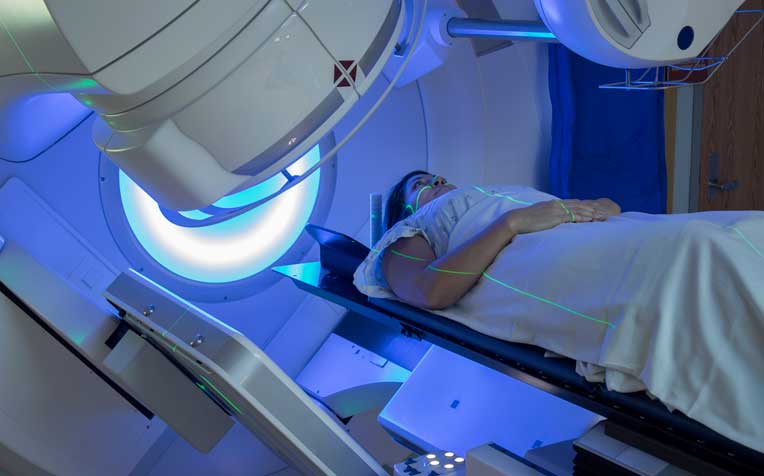HealthXchange will NEVER ask you to transfer money over a call. If in doubt, call the 24/7 ScamShield helpline at 1799, or visit the ScamShield website at www.scamshield.gov.sg.

Radiotherapy is often used with other treatments such as surgery or chemotherapy to treat cancer.
Selected women with early-stage breast cancer may be offered a new treatment known as intraoperative radiotherapy (IORT), when they undergo lumpectomy or breast-conserving surgery. A single dose of radiotherapy, lasting 30 to 40 minutes, is delivered only to the tumour site in the breast during surgery.
In contrast, conventional treatment comprises 30 sessions of radiotherapy delivered to the whole breast over five days a week for six weeks. The long duration of conventional treatment has led some patients to choose mastectomy, even though they may find it hard to cope psychologically with the loss of a breast.
New radiotherapy treatment can spare patient from losing a breast
The single session of IORT offers the same survival outcome as conventional radiotherapy. Dr Ho Gay Hui, Visiting Consultant at the Department of Surgical Oncology, National Cancer Centre Singapore (NCCS), a member of the SingHealth group, said the partial radiation delivered by IORT spares a patient’s normal tissues. “These tissues may include the skin of the breast, the remaining breast tissue, underlying ribs, the lung and the heart,” she said.
However, Dr Ho said IORT is not suitable for all breast cancer patients. “It is particularly good for those diagnosed with breast cancer at an early stage. This reinforces the need for women aged 40 and above to go for regular mammography screening.”
On average, 1,850 women in Singapore were diagnosed with breast cancer yearly, between 2010 and 2014, making it the most common cancer among women, according to the Singapore Cancer Registry.
The first IORT procedure was carried out in June 2012 by Dr Ong Kong Wee, Consultant Surgeon, Surgical Oncology, NCCS, and Dr Wong Fuh Yong, Consultant Radiation Oncologist, Radiation Oncology, NCCS.
Till the end of 2012, NCCS had treated at least eight more patients with the technique. All of them coped well with the radiation and experienced minimal side effects.
NCCS will be conducting clinical trials in future to extend the use of IORT to a larger group of breast cancer patients.
Ref: S13
Contributed by
Related Articles
Conditions & Treatments
Public Events
Get the Health Buddy App
© 2025 SingHealth Group. All Rights Reserved.


















 Get it on Google Play
Get it on Google Play